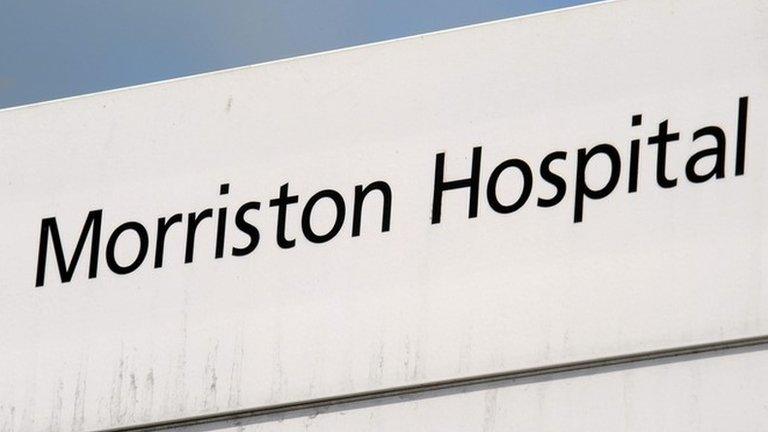Ambulance response time targets missed in February
- Published
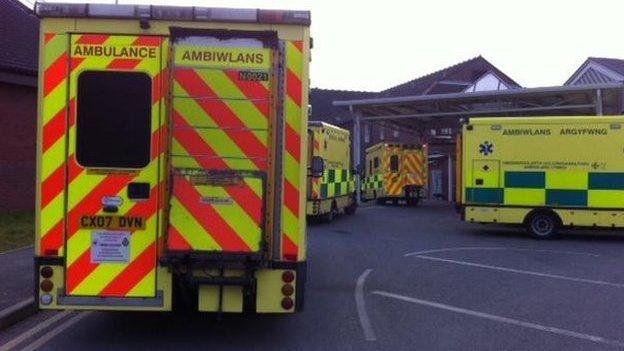
Figures show there were 32,788 emergency calls to the Welsh Ambulance Service in February
A big drop in ambulance response times have been dubbed a "national disgrace".
In February, 52.8% of life-threatening calls saw an ambulance arrive in eight minutes compared with a 65% target.
The figures, external were released as the Welsh government announced a change in the indicators used to measure performance to show clinical benefit "rather than on the basis of time alone".
The response times have been criticised heavily by the Welsh Liberal Democrats and the Conservatives.
"It would seem our ambulance service has reached crisis point," said Kirsty Williams leader of the Welsh Liberal Democrats.
"These figures are a national disgrace. People deserve better than this.
"These alarming figures come on the same day the health minister has said he plans to change the way our ambulance service is monitored."
Her party says the figures are "worst" since the monitoring system was last changed in 2011 and come on the same day Health Minister Mark Drakeford announced a new change in monitoring performance of A&E units and the ambulance service.
The figures show there were 32,788 emergency calls, 5.5% down on January 2014 but 0.8% up on February 2013.
Of these, 13,266 were Category A (immediately life-threatening) calls, 3.4% down on January 2014 but 1.6% up on February 2013.
52.8% of emergency responses to Category A calls arrived at the scene within eight minutes - down from 57.6% in January 2014 and from 60.8% in February 2013 - and below the target of 65%.
57.7% of Category A calls received an emergency response within nine minutes, 62.1% within 10 minutes, 79.1% within 15 minutes and 88.3% within 20 minutes.
'Response time fiasco'
The ambulance service hit the key national eight-minute target for life-threatening calls last October, the first time it had been achieved since May 2012.
Conservative Shadow Health Minister, Darren Millar AM, said: "Labour's ambulance response time fiasco continues and it's patients who are paying the price.
"Despite the hard work of staff, the performance of the Welsh Ambulance Service remains entirely unacceptable.
"The disclosure of these figures - on the same day that Carwyn Jones and Welsh Labour have announced radical changes to the way that NHS performance is measured - suggests an attempt to bury bad news, and communities across Wales will rightly question the motives behind the timing."
Elin Jones AM, Plaid Cymru's health spokesperson, said: "This poor performance happened despite receiving significantly fewer calls than in previous months which should be a huge cause for concern for the Welsh government.
"The Welsh government should get to grips with the ambulance service instead of seeking to shift the goalposts by changing targets."
The Welsh government has yet to comment on the latest figures but on the change in indicators, Health Minister Mark Drakeford told BBC Wales: "I want us to judge the success of our services by measuring things which make a difference to patients and the effectiveness of the treatment they receive.
"This development work will make sure what we measure is more meaningful in terms of clinical benefit and outcomes for patients, rather than on the basis of time alone."
- Published26 March 2014
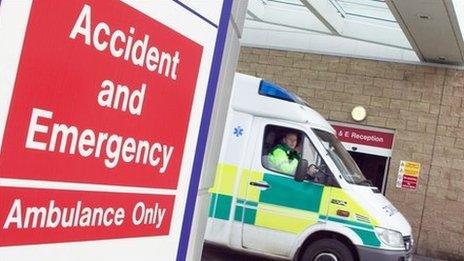
- Published3 February 2014
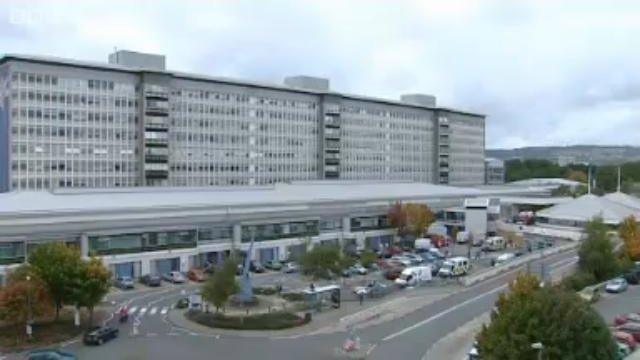
- Published29 January 2014
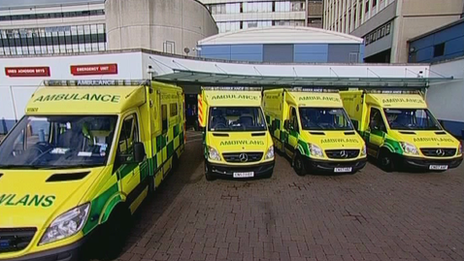
- Published10 December 2013
